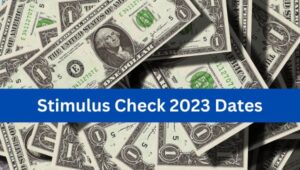Have you heard the buzz about the 2000 4th stimulus check? If you’re like many Americans, your ears may have perked up at the mere mention of “stimulus check eligibility” and all the potential aid that could come your way. As we navigate through these tumultuous economic waters, understanding the latest updates on financial relief can be a game-changer. So, let’s dig into what you really need to know about this upcoming stimulus check—who qualifies, when it’s likely to hit your bank account, and all those nitty-gritty details that make all the difference.
Understanding the 2000 4th Stimulus Check
The idea of a 2000 4th stimulus check has been a hot topic of discussion among policymakers and citizens alike. But what does it really mean for you? Simply put, this financial boost aims to support individuals and families who continue to face economic challenges. While the specific details are still being ironed out, it’s essential to keep a finger on the pulse of eligibility criteria and other logistics.
Who is Eligible for the 2000 4th Stimulus Check?
Eligibility for the 2000 4th stimulus check is likely to mirror previous stimulus checks, but there are a few new twists and turns. Generally, if you’re a U.S. citizen or a qualified resident alien and earn under a certain income threshold, you may find your name on that eligibility list. Typically, individuals making less than $75,000 and married couples earning less than $150,000 might just see that deposit come their way. Now, add dependents into the mix, and the checks could potentially climb higher—this is where family dynamics can start to play a crucial role.
Income Requirements and Considerations
It’s important to keep in mind that as income levels rise, the size of the check shrinks. If you’re caught making over $100,000 as a single filer or $200,000 as a married couple, your eligibility may be compromised. Think of it this way: it’s like a sliding scale; the higher you climb, the less help you get. If you’ve experienced a significant life change—like losing a job or experiencing a drop in income during the pandemic—it’s advisable to keep abreast of updates as this might affect your standing.
When Will the 2000 4th Stimulus Check Be Deposited?
So, you might be wondering, “When can I expect this windfall?” Well, that’s the million-dollar question! While no official date has been confirmed yet, early projections suggest this check might roll out in the coming months. Keep an eye out for updates from the IRS and your local government, as they will likely provide the most accurate timelines as decisions are finalized.
How Will the Payment Be Distributed?
In terms of distribution, expect it to follow a familiar path if you’re a veteran of previous stimulus payments. Most payments will likely be sent directly to your bank account via direct deposit. For those without a direct deposit setup, checks will most probably fly through the mail, which means you might find yourself waiting a little longer. It’s like waiting for a gift to arrive, but not knowing how long it’ll take!
Conclusion
To sum it all up, the excitement around the 2000 4th stimulus check is palpable, especially for those feeling the pinch of the ongoing economic issues. Staying informed about stimulus check eligibility, payment timelines, and distribution methods can help you plan better. Always make sure that you have the correct information and keep your financial documents in order, just in case you need to support your application. So, keep your fingers crossed, and let’s hope those checks arrive sooner rather than later!
FAQs
1. Who qualifies for the 2000 4th stimulus check?
Generally, U.S. citizens or qualified resident aliens earning under $75,000 as individuals or $150,000 as married couples will likely qualify.
2. When is the expected deposit date?
While no official date has been released yet, early estimates suggest deposits could happen in the coming months. Keep an eye on updates!
3. What about dependents?
Families may receive additional amounts for dependents, so it’s worth factoring this into your expected payment if applicable.
4. How will payments be distributed?
Payments will likely be sent via direct deposit for those who have it set up with the IRS. Others may receive checks in the mail, which could take longer.
5. What if my income changes?
If you experience a significant drop in income, make sure to stay updated, as changes may affect your eligibility for the check.
